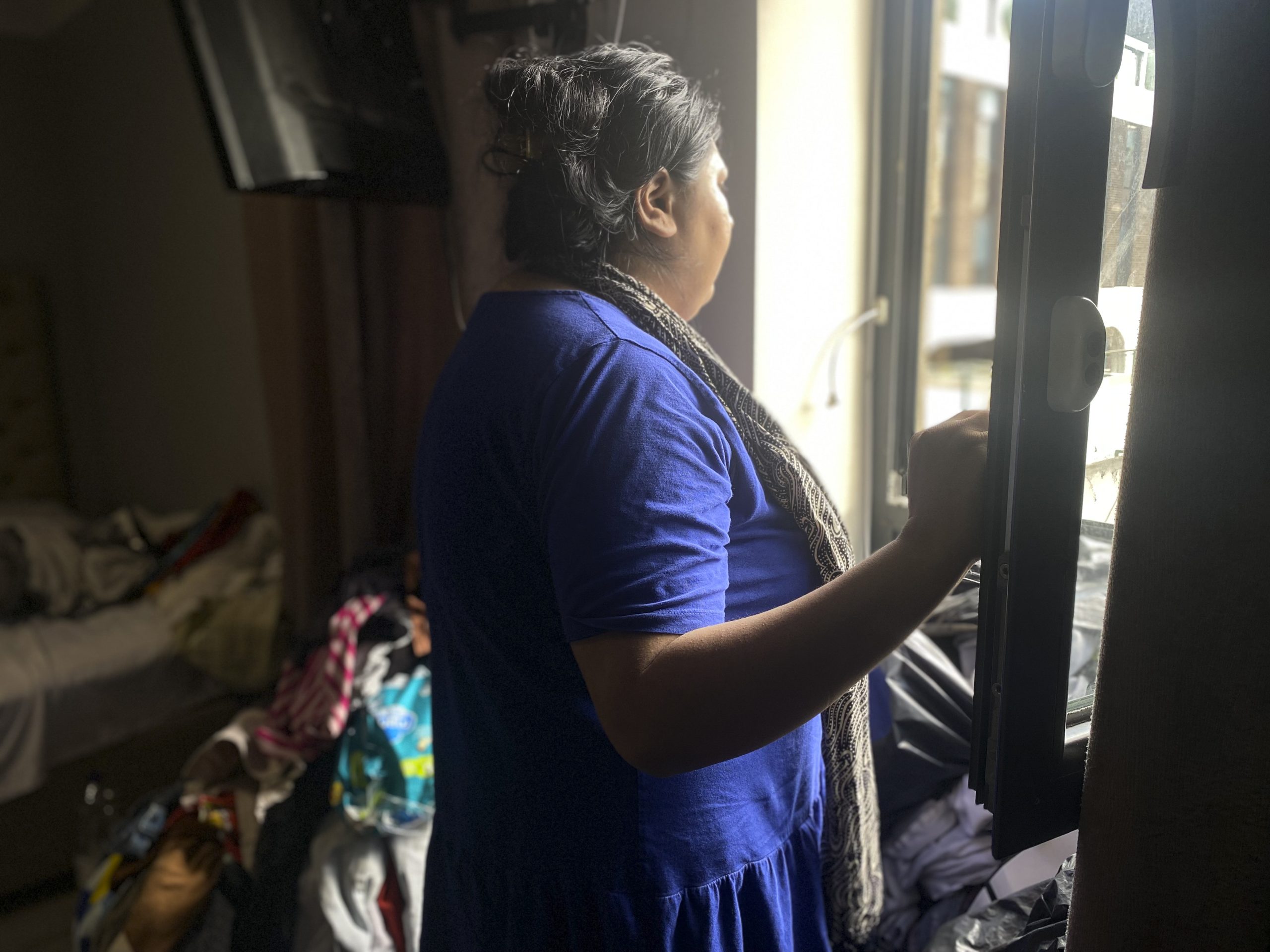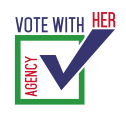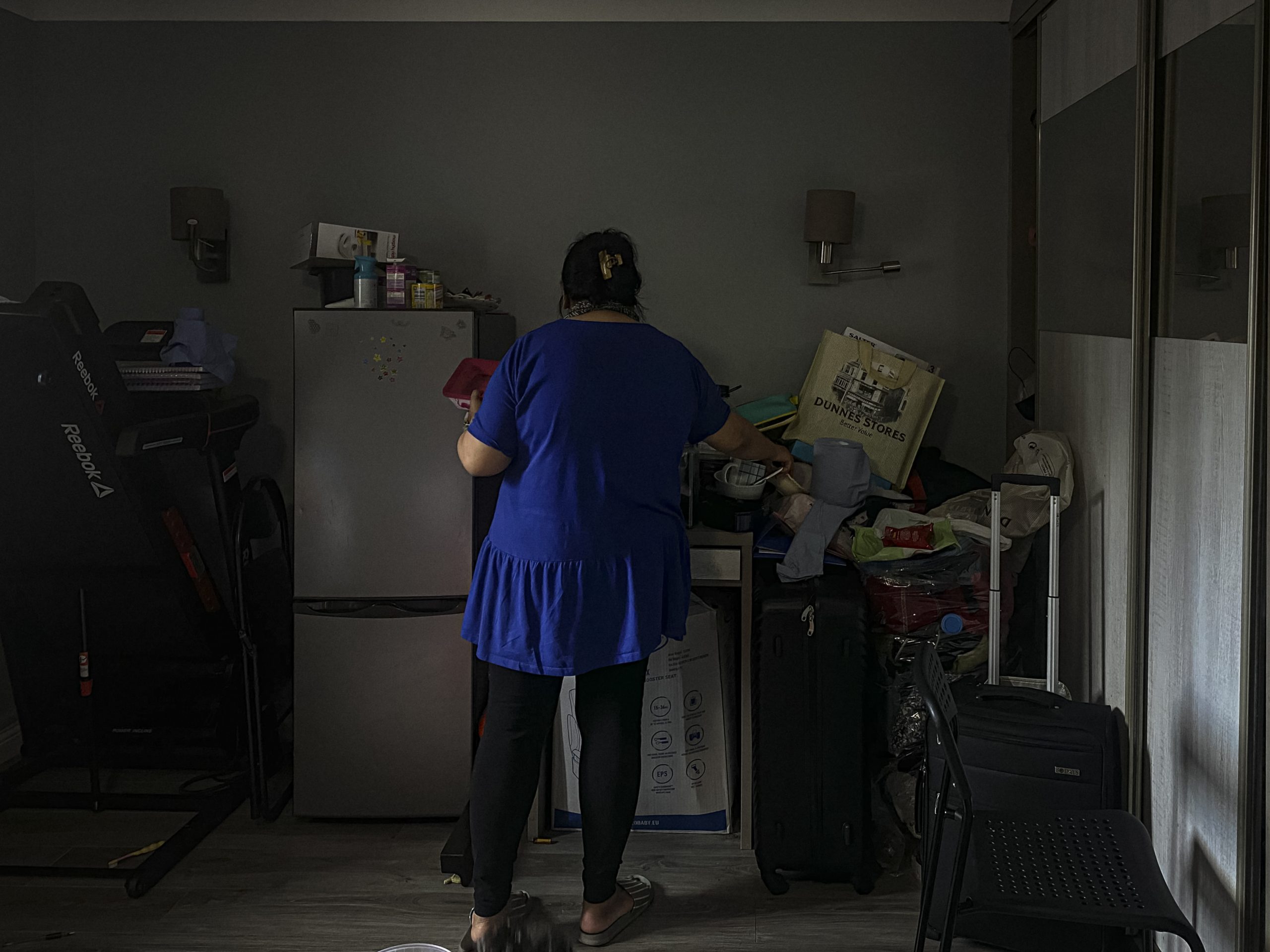
Walls and Borders
Photos and text by Maimuna Adams
From June 6th to June 9th, 2024, people in Europe will have a chance to help decide what happens next in European politics during the European elections. You will have the power to choose if women will start enjoying real freedom and equality or they will continue diying and languishing in injustices and disempowerments. As your action and inaction during this election period will shape the experiences of women and girls for the next five years.
This election period is a time when we can all work together to decide about the European Union’s future. Your vote matters, whether for things happening in your neighbourhood, country, or across Europe. It is a chance to speak up about the issues that matter to you.
It can be easy to forget that the outcome of the European elections impacts the lives of many people, even outside the EU. The European Parliament adopts laws and policies that affect everyone, including migrant women living in EU countries who are usually marginalised, ironically, some of these women do not possess the right to vote in this election.
The new EU Pact on Migration and Asylum Policy is one example of an EU policy that its impact stretches beyond the EU borders. This pact has been argued to not only possibly exacerbate the current gaps and challenges migrants and asylum seekers face in European society, but likely also lead to countries having the power to take extreme measures to deter migration, like putting vulnerable immigrants including women and children in detention. This new policy mainly seeks to stop people from reaching Europe rather than to protect them or address the underlying drivers of migration.
Even though migration in EU is often presented as a crisis/problem, figures have shown thatcurrent perception is far from reality. By the end of September 2023, 114 million people were displaced from their homes globally due to climate change, economic hardship and war. However, most of these people remain in their own region. Currently 76% of the world’s refugees are hosted in low and middle-income countries and just a small fraction seeks to reach protection in Europe. Nonetheless, EU countries have consistently failed to uphold and protect their human rights, as researchers and NGOs have consistently shown evidence of injustices and inhumane treatments in EU countries asylum systems.
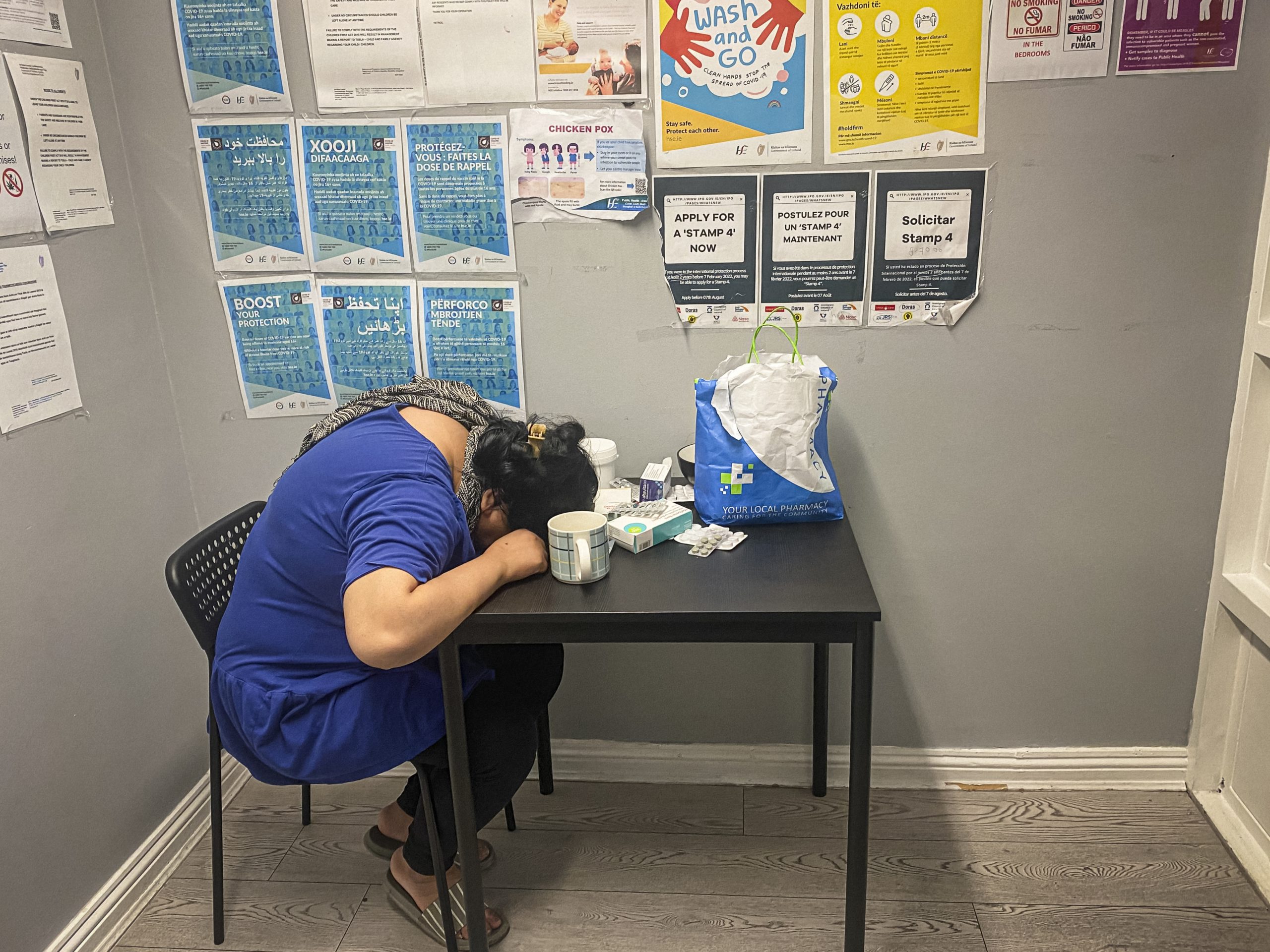
For this project I worked with a woman who is seeking international protection in Ireland and lives in the Irish direct provision system with her family in one room. She was forced to migrate to Ireland as she fled from her country to seek safety and protection in Ireland. She carries traumas from her past but continues to get scarred and re-traumatised in an unfavourable institutionalised environment, where she is constantly in a survival mode with very little support. When I asked her to describe her experience in the direct provision, she said:
“Honestly, I am shattered! My mental health is draining.
My child is suffering and as a mother it is so painful (breaks down).
My child has behavioural issues that build up based on the place we are living, always locked up in the room. I’m worried about my child.
I have to deal with all this, laundry, work, college. I have no family support, no friend support.
It’s so sad to see every day your child not developing because of these things. I’m just overwhelmed.”
Direct Provision is Ireland’s system of accommodating those seeking international protection while in the asylum process, managed by the International Protection Accommodation Service (IPAS) an administrative division of the Department of Justice. Direct Provision was initially conceived as a short-term solution to accommodate people seeking asylum by providing them with food, board and basic necessities for no longer than six months. However, due to significant delays in the asylum process, most people spend an average of three years in Direct Provision and in some cases more than seven years.
The problems of direct provision system in Ireland are well documented by researchers and NGOs. The time spent waiting, the indefinite nature of that wait, the overcrowding, the lack of privacy, the inability to cook or live a normal family life, the limited access to education/opportunities, the delay in accessing the right to employment the isolation, the difficulty accessing services – all combine to make Direct Provision a very difficult, and in many cases, very painful experience.
This is in line with the story of my Heroine for this project, who faces many challenges (including health issues) relating to her past trauma, which is compounded by her experiences of direct provision. She is also a mother to a school aged child with special needs. She describes her situation as extremely difficult and frustrating. She lives in liminality, a state of constant fear in an unsuitable and malicious environment. Yet, when I asked her if she was able to take part in this project with me, she said: “I think I want to be voice because as asylum seeker I faced so many challenges”.
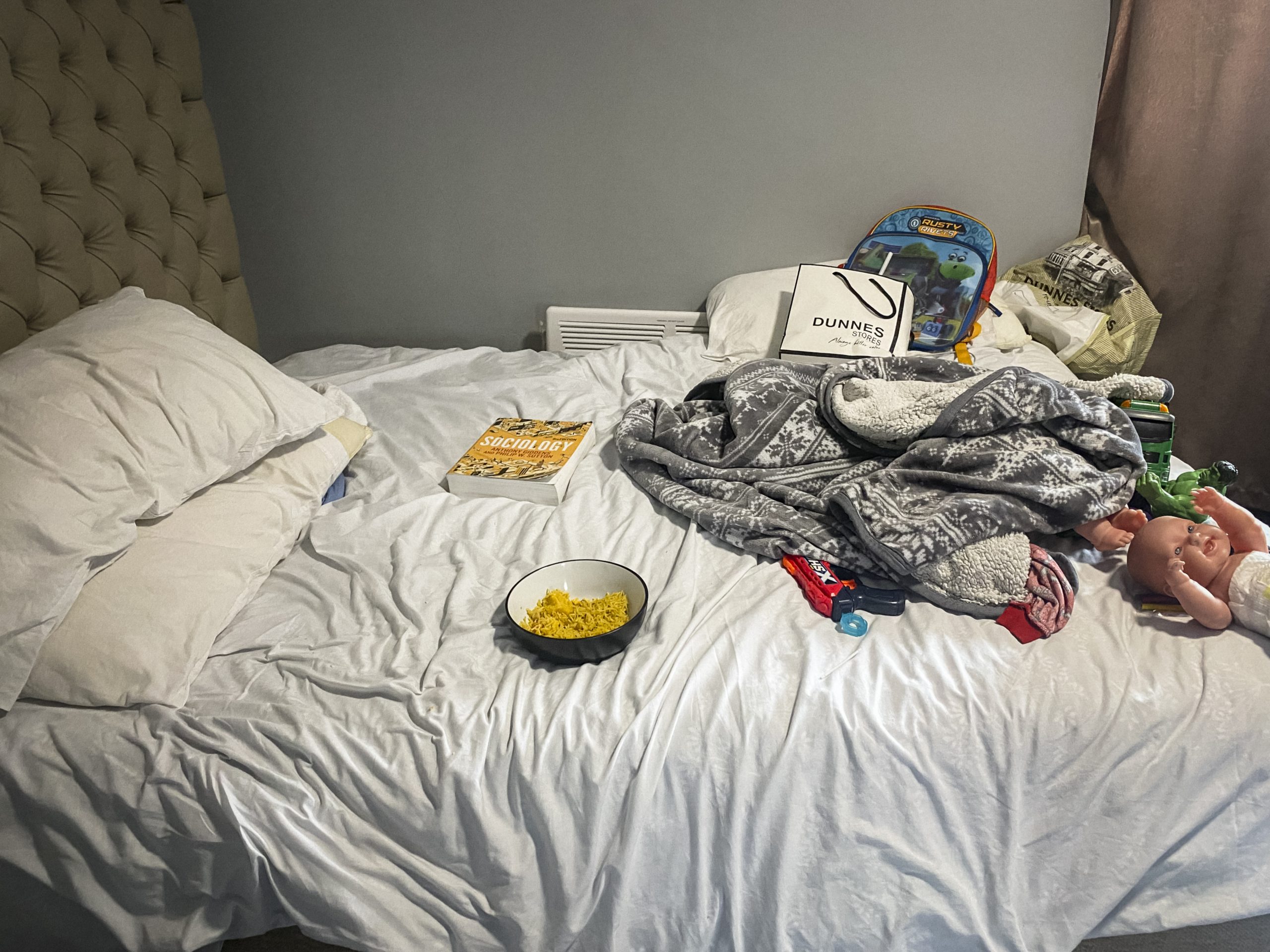
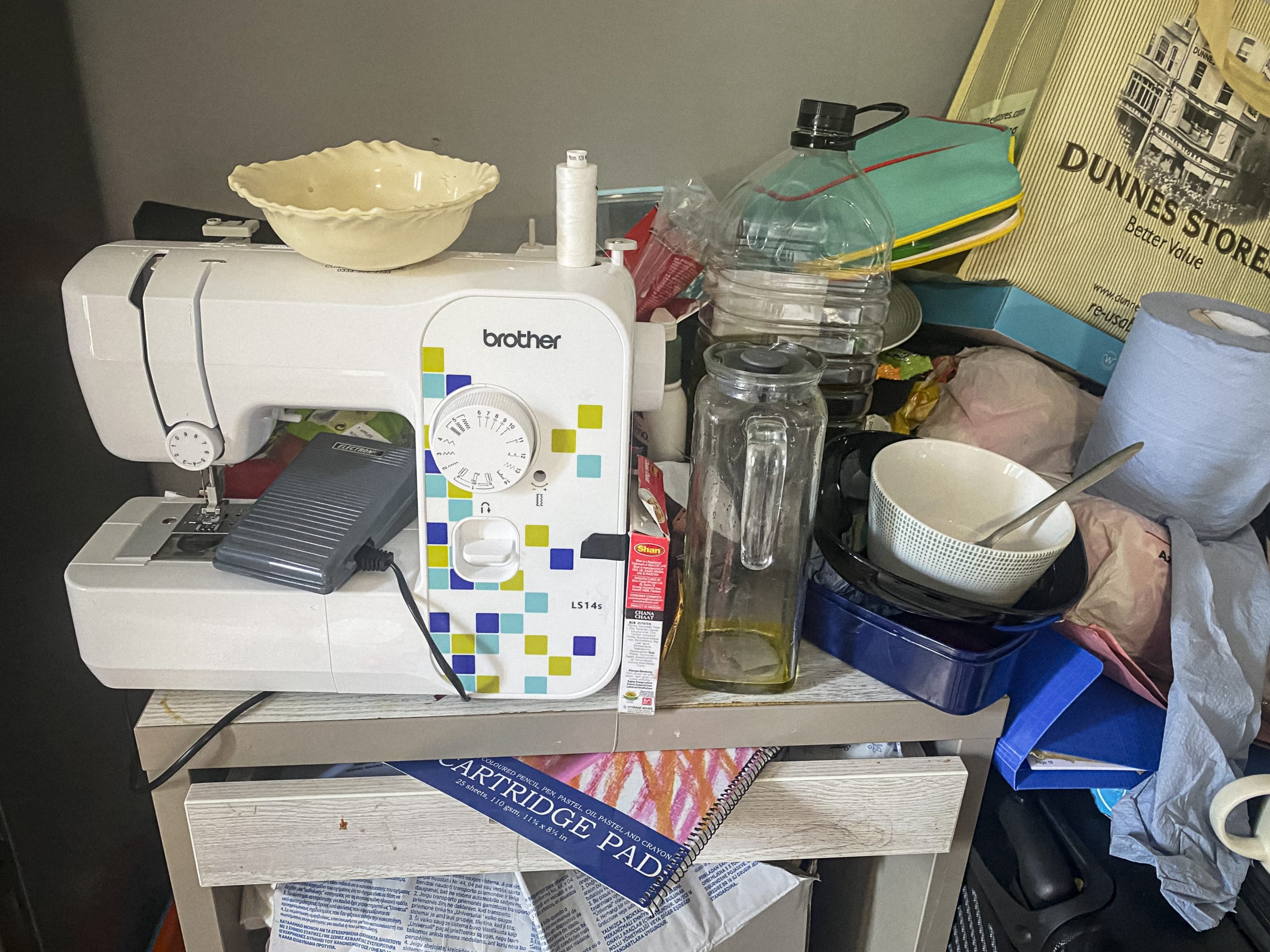
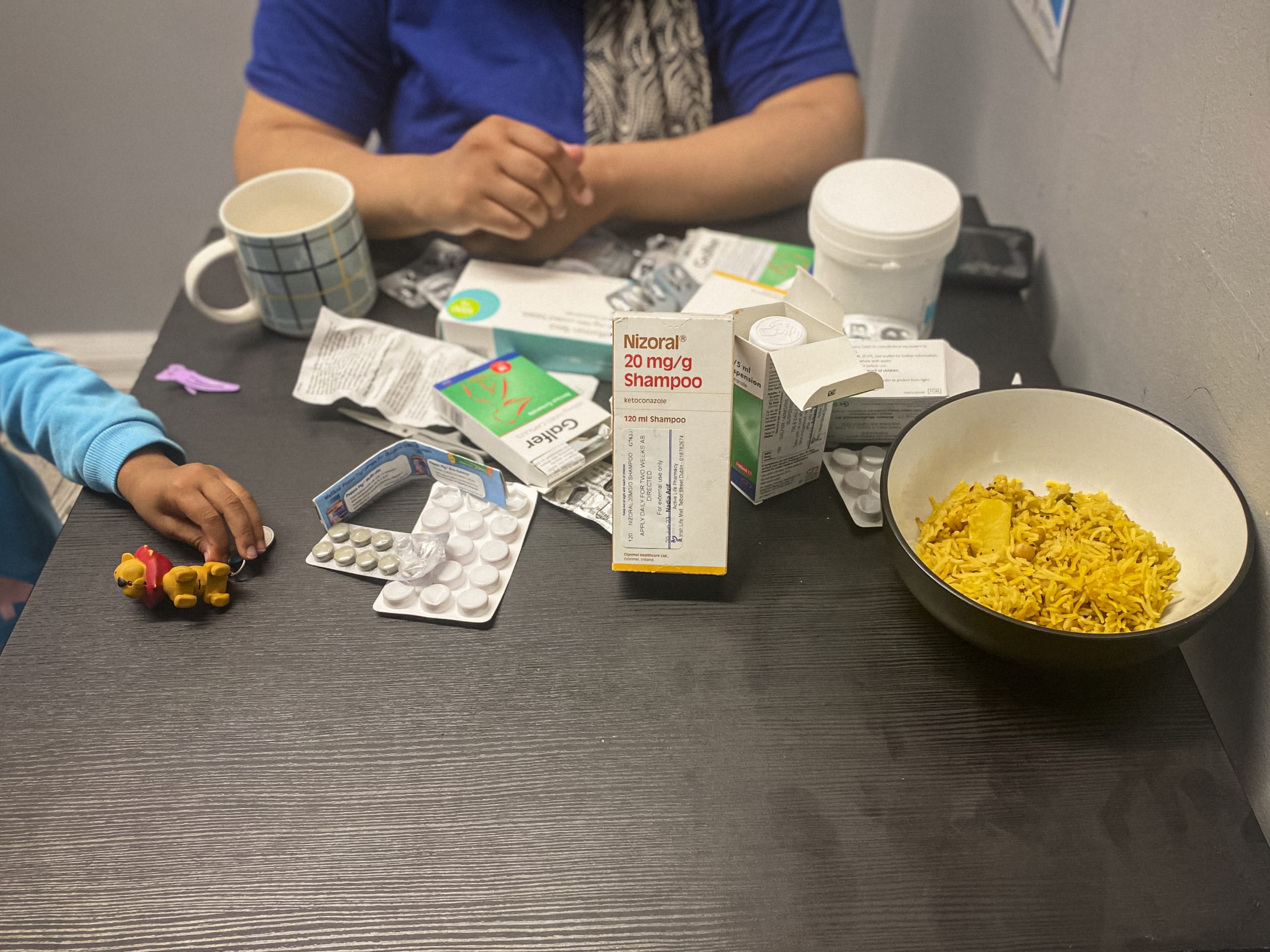
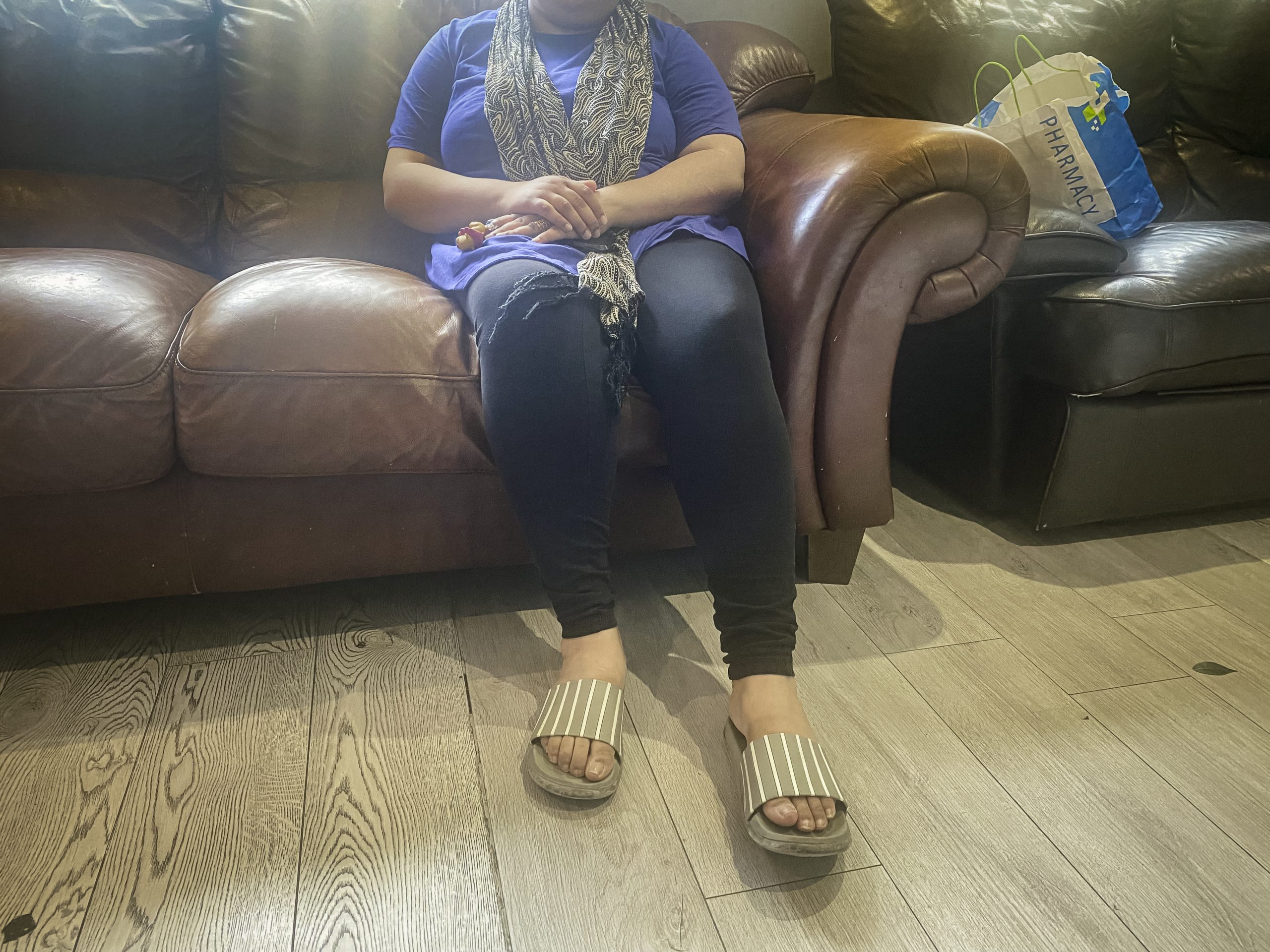
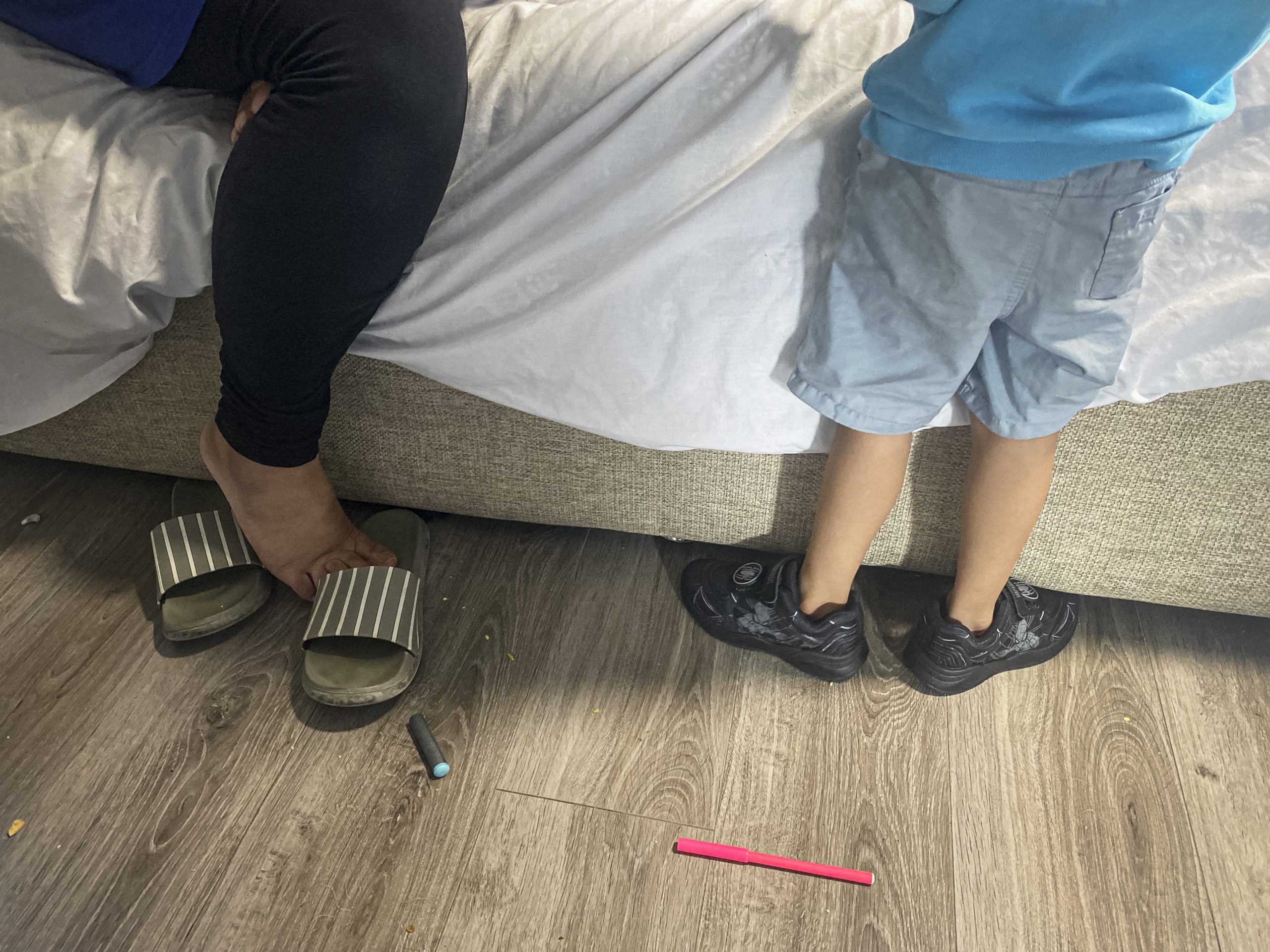
My project highlights the difficulties migrant women and mothers must endure in the Irish direct provision system. The struggles women face in the system drain up their time, energy and will, that it becomes too much to live. Things that other mothers and children take for granted become luxuries to mothers and children living in direct provision. Eating and cooking become extremely painful, privacy, playtime and engaging in hobbies become luxuries.
So, I call on policymakers, immigrants and all everyone who hold political rights, to take action to end the inhumane asylum system in Ireland and EU generally. Exercise your right to vote to promote justice and ensure that everyone enjoys human rights, including migrant women.
Put a stop to racist and discriminatory migration policies which are likely to expose women to gender-based violence, torture and death. When you vote, you choose the Members of the European Parliament, who will work on behalf of migrant women on issues like ending direct provision system, promoting humane international protection policies and system. These Members make decisions that affect your daily life.
Your vote matters. If you vote, you have a say. Do not forget, in Ireland the election date is yet to be decided but national and EU elections will be from 6th to 9th of June 2024.
